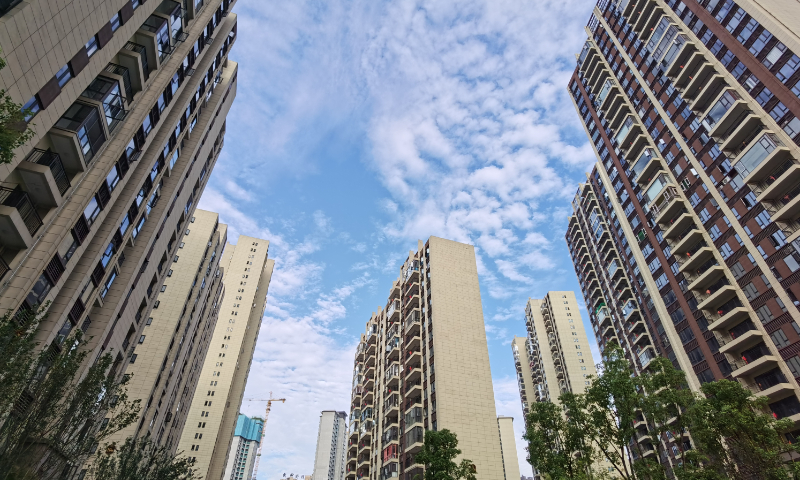China’s property market is adjusting and some developers have encountered difficulties, especially after the debt risks of some industry giants were exposed and affected market expectations. However, the problems are temporary and industry risks are expected to ease with the implementation of market adjustment mechanisms and housing policy adjustments, National Bureau of Statistics (NBS) spokesperson Fu Linghui said on Tuesday.
Fu made the remarks while commenting on the development trend of the property sector and the liquidity crisis faced by Chinese property giant Country Garden.
From January to July, property investment fell 8.5 percent year-on-year to 6.77 trillion yuan ($929.34 billion). The total value of commercial residential property sold was 7.04 trillion yuan, down 1.5 percent, according to NBS data. “Along with the economic recovery, growth in personal incomes and housing policy adjustments showing positive effects, residents’ consumption willingness and investment willingness of property developers will gradually improve,” Fu said.
First-tier cities including Beijing, Shanghai and Guangzhou and Shenzhen in South China’s Guangdong Province announced that they will support residents in buying their first homes or improving their housing situation, and some second- and third-tier cities have rolled out new policy adjustments. These moves, combined with policy adjustments and optimization, will lift market confidence, he said.
Multiple second- and third-tier cities such as Fuzhou and Xiamen in East China’s Fujian Province, Chengdu in Southwest China’s Sichuan Province and Shenyang in Northeast China’s Liaoning Province plan to adjust housing purchase restrictions and cut down payments for second home buyers to as low as 20 percent, China Central Television reported on Monday.
“The timely policy adjustments are expected to encourage people to buy their first homes or trade up, which will increase transactions,” Yan Yuejin, research director at Shanghai-based E-house China R&D Institute, told the Global Times on Tuesday.
Now is a critical period for the rollout of forceful policies to stimulate the property market, with more policies in the pipeline for the third quarter – for example providing details on how mortgages on second homes are to be treated in the same way as first mortgages, as long as the buyer has paid off the first loan, Yan said.
A top meeting held on July 24 called for concrete efforts to prevent and defuse risks in key areas, and to adjust and optimize real estate policies promptly in response to the new situation, where “major changes have taken place in the relationship between supply and demand in China’s real estate market,” the Xinhua News Agency reported.
“The country’s real estate market may bottom out in the third or fourth quarter along with policy support and a comprehensive economic recovery,” Song Ding, a research fellow at the China Development Institute, told the Global Times on Tuesday.
All sectors of the economy are gaining momentum, with a turning point for the improvement of major macroeconomic indexes expected in September or October. The property sector will follow, he said.
He anticipated that the five-year loan prime rate – a reference rate for mortgages – may be cut soon, following other interest rate cuts on Tuesday.
Song called for patience to tackle difficulties and challenges in the country’s property sector, which requires the coordination of various sectors as well as a property market rebound.
Admitting it’s facing unprecedented difficulties, Country Garden has been active in carrying out self-rescue. It has established a special working group led by the chairman of the board of directors as well as a working mechanism to coordinate efforts and promote effective decision-making to help the group get over this hard phase, according to a filing with the Hong Kong stock exchange.
(Global Times)




